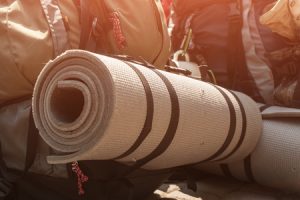 A comfortable sleeping pad is one of the best pieces of camping gear you can have in your tent. Not only will your sleeping pad provide much-needed cushioning when you’re sleeping on the ground, it will also help keep you warm when the weather gets chilly. But which type is right for you?
A comfortable sleeping pad is one of the best pieces of camping gear you can have in your tent. Not only will your sleeping pad provide much-needed cushioning when you’re sleeping on the ground, it will also help keep you warm when the weather gets chilly. But which type is right for you?
Air Pads
As their name implies, air pads need to be inflated, either with your breath or with a hand pump.
- Pros: Air pads are great for backpacking trips because they’re very lightweight and comfortable.
- Cons: The lighter and more compact the air pad, the more expensive it tends to be. They can also deflate somewhat during the night, and are prone to rips and tears.
Self-inflating
Self-inflating sleeping pads combine open-cell foam insulation and air. Some are foldable and designed for backpacking trips, whereas others roll up, and are best for car camping trips.
- Pros: Self-inflating pads offer excellent insulation and make it easy to adjust the firmness by releasing or adding air. They’re also made of stronger fabric than air pads, which makes them a good choice if you’re traveling with pets or children.
- Cons: Self-inflating pads are less compact than air pads, and heavier than simple foam pads.
Closed-Cell Foam Pads
These basic backpacking pads are made of dense foam.
- Pros: You can carry them outside your pack without fear of damage, since they aren’t prone to punctures or damage. They also offer good insulation.
- Cons: Many campers find foam pads to be the least comfortable type. They also tend to be stiff and bulky.
Ready to enjoy a relaxing camping trip by the shores of the Suwannee River? Give us a call or contact us online to book your next trip today!

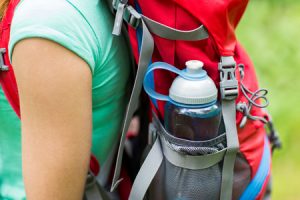 Your backpack can make or break a day of hiking. Choose the wrong backpack, and a light load can feel like a ton of bricks. Choose the right one, and you’ll feel like you’re barely carrying anything at all. Here’s how to fit a new hiking backpack:
Your backpack can make or break a day of hiking. Choose the wrong backpack, and a light load can feel like a ton of bricks. Choose the right one, and you’ll feel like you’re barely carrying anything at all. Here’s how to fit a new hiking backpack: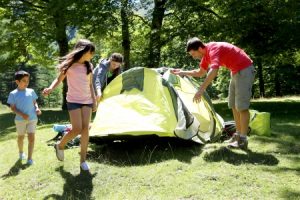 Don’t let sweltering temps keep you from camping in July and August. Make the most of the season with these tips to help you stay cool during your next summer camping trip.
Don’t let sweltering temps keep you from camping in July and August. Make the most of the season with these tips to help you stay cool during your next summer camping trip. Mosquitoes are a fact of life outdoors. They can smell the carbon dioxide in human breath from over 100 feet away, so it’s no wonder they flock to campsites this time of year. However, there’s no need to let these pesky creatures ruin your outdoor fun with itchy bites. Here are a few clever ways to deter mosquitoes during your next camping trip.
Mosquitoes are a fact of life outdoors. They can smell the carbon dioxide in human breath from over 100 feet away, so it’s no wonder they flock to campsites this time of year. However, there’s no need to let these pesky creatures ruin your outdoor fun with itchy bites. Here are a few clever ways to deter mosquitoes during your next camping trip.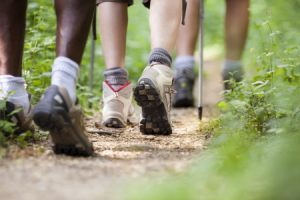 Warm spring weather is upon us, which means it’s time to lace up those hiking boots and hit our favorite trails around the Suwannee River. However, even the most experienced hiker can have mishaps without adequate preparation. Stay safe on the trail this spring and summer with these helpful hiking tips:
Warm spring weather is upon us, which means it’s time to lace up those hiking boots and hit our favorite trails around the Suwannee River. However, even the most experienced hiker can have mishaps without adequate preparation. Stay safe on the trail this spring and summer with these helpful hiking tips: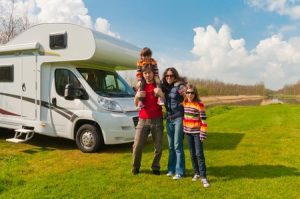 Spring has arrived, and you know what that means—the start of RV camping season! And of course there’s no better place for a camping trip than Suwannee River Rendezvous in Mayo, Florida. We’ve got warm weather, a freshwater spring, the nearby Suwannee river for
Spring has arrived, and you know what that means—the start of RV camping season! And of course there’s no better place for a camping trip than Suwannee River Rendezvous in Mayo, Florida. We’ve got warm weather, a freshwater spring, the nearby Suwannee river for 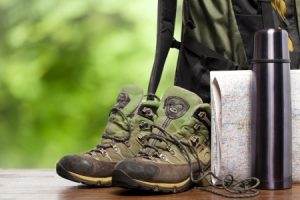 Getting ready to hit the road for your next camping trip? Before you leave home, you’ll need to pack up everything you want to bring along with you for the journey. From weather-resistant clothing to food for your fellow campers, you don’t want to leave any necessities behind. Here are a few tips to make the packing process seem a little less daunting.
Getting ready to hit the road for your next camping trip? Before you leave home, you’ll need to pack up everything you want to bring along with you for the journey. From weather-resistant clothing to food for your fellow campers, you don’t want to leave any necessities behind. Here are a few tips to make the packing process seem a little less daunting.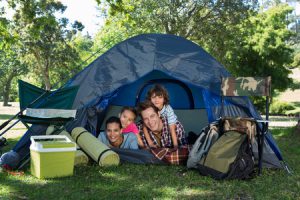 Has your family’s old tent seen better days? If so, you should consider replacing it with a new tent that will get you excited about camping again. Today’s tents are lighter, more durable and easier to set up than ever.
Has your family’s old tent seen better days? If so, you should consider replacing it with a new tent that will get you excited about camping again. Today’s tents are lighter, more durable and easier to set up than ever.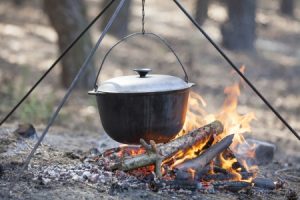 Getting ready to pack up the car for your next camping trip? If you haven’t been on a camping trip in a while, you may be concerned about the logistics of cooking meals at a campsite. The good news is, there are a few simple steps you can take to make cooking much easier while camping. Check out a few of our favorite meal prep tips below!
Getting ready to pack up the car for your next camping trip? If you haven’t been on a camping trip in a while, you may be concerned about the logistics of cooking meals at a campsite. The good news is, there are a few simple steps you can take to make cooking much easier while camping. Check out a few of our favorite meal prep tips below! Practicing good personal hygiene can be challenging when you’re on a camping trip. You want to keep yourself clean and healthy, but it can be tough when you have limited access to water and bathroom supplies Today we’ll look at a few helpful hygiene tips to keep in mind during your next camping adventure.
Practicing good personal hygiene can be challenging when you’re on a camping trip. You want to keep yourself clean and healthy, but it can be tough when you have limited access to water and bathroom supplies Today we’ll look at a few helpful hygiene tips to keep in mind during your next camping adventure.